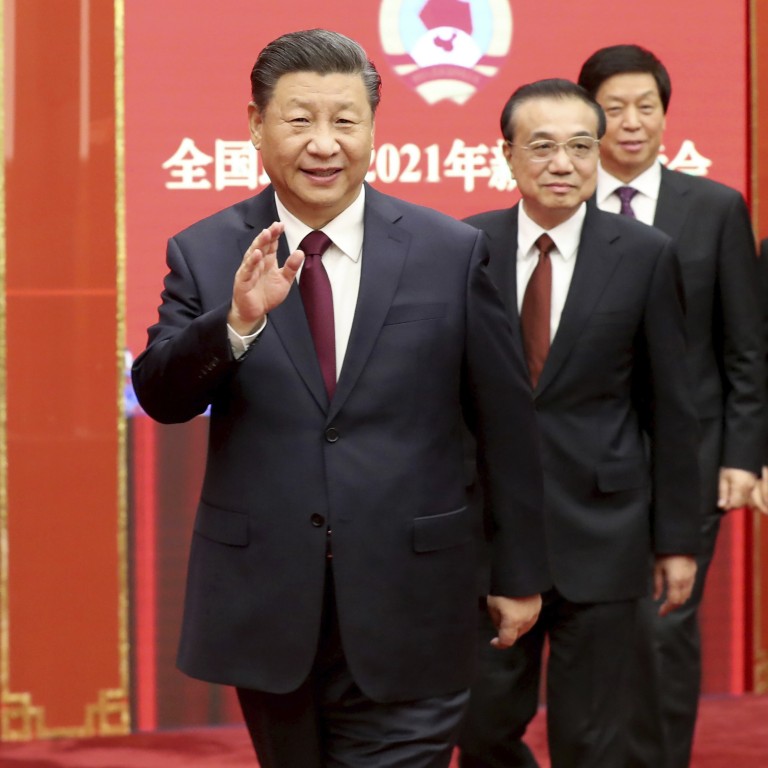
Coronavirus: Chinese President Xi Jinping ‘worried and concerned’ about Hong Kong’s Covid-19 fourth wave in first virtual meeting with city leader Carrie Lam
- Xi also stresses importance of ensuring city is governed by patriots as he hails return of stability
- In separate session, president praises Macau leader Ho Iat-seng for his government’s success in containing the pandemic
While pledging Beijing’s utmost efforts to help fight the pandemic, Xi also stressed the importance of ensuring the city was governed by patriots as he hailed the restoration of stability over the past year.

The annual briefings were originally due to be held in person in the capital in December, but according to sources they were delayed due to the busy schedules of state leaders, while the coronavirus continued to disrupt normal life in Hong Kong. The meetings marked the first time since Britain handed the city back to China in 1997 that the chief executive did not go to Beijing for the duty visit.
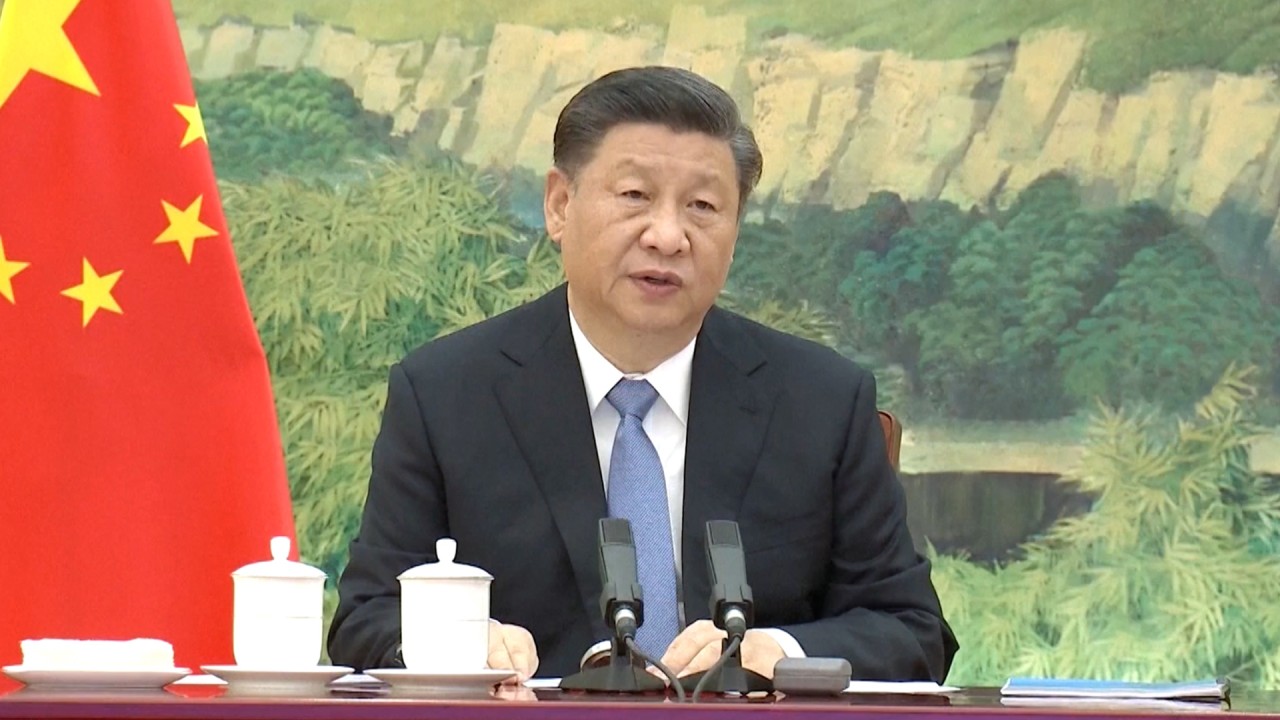
01:31
Xi says he is ‘worried’ about Hong Kong Covid-19 cases during virtual meeting with Carrie Lam
In his session with Lam, Xi said the world had been seriously impacted by the pandemic and the implications for Hong Kong, a highly open international city, were relatively enormous.
Coronavirus left Hong Kong with HK$342.2 billion trade deficit in 2020
“Earlier, the fourth wave of the pandemic broke out in Hong Kong. It caused relatively serious threats to residents’ life, safety and health, and created many troubles for people’s work and lives,” he said.
“I am very concerned and worried. The central government has adopted, and will continue to adopt, all necessary measures, and fully support Hong Kong in battling the pandemic.
“People must remain firm in their faith and stay united. The motherland will always firmly back Hong Kong, and the difficulties at hand can surely be overcome.”
While Xi offered recognition for Lam’s achievements in containing the coronavirus and restoring the local economy, he was more effusive in his praise for Ho’s success in responding to the health crisis.
“In the face of the sudden pandemic, you responded quickly, adopted stringent measures and brought it under control within a short period of time,” he told Ho, noting Macau had gone more than 300 consecutive days without a local infection.
Carrie Lam defends surprise lockdown in face of residents’ complaints
The idea that patriots form the main body of Hong Kong administrators is a central part of late paramount leader Deng Xiaoping’s vision for how the city would be governed after the handover.
Xi described it as a fundamental principle that safeguarded the nation’s sovereignty, security and development, as well as ensured Hong Kong’s stability and long-term prosperity.
Xi stressed the principle was a precondition for resolving deep-seated problems in the city and fostering “its contribution to the realisation of the great rejuvenation of the Chinese nation”.
Under the national security law, public officers must vow to uphold the Basic Law, Hong Kong’s mini-constitution, and pledge allegiance to the city.
In November, four opposition lawmakers were stripped of their seats for lobbying foreign governments to impose sanctions on Hong Kong.
Xi said that following the introduction of the security law, Lam had shown commitment to restoring stability.
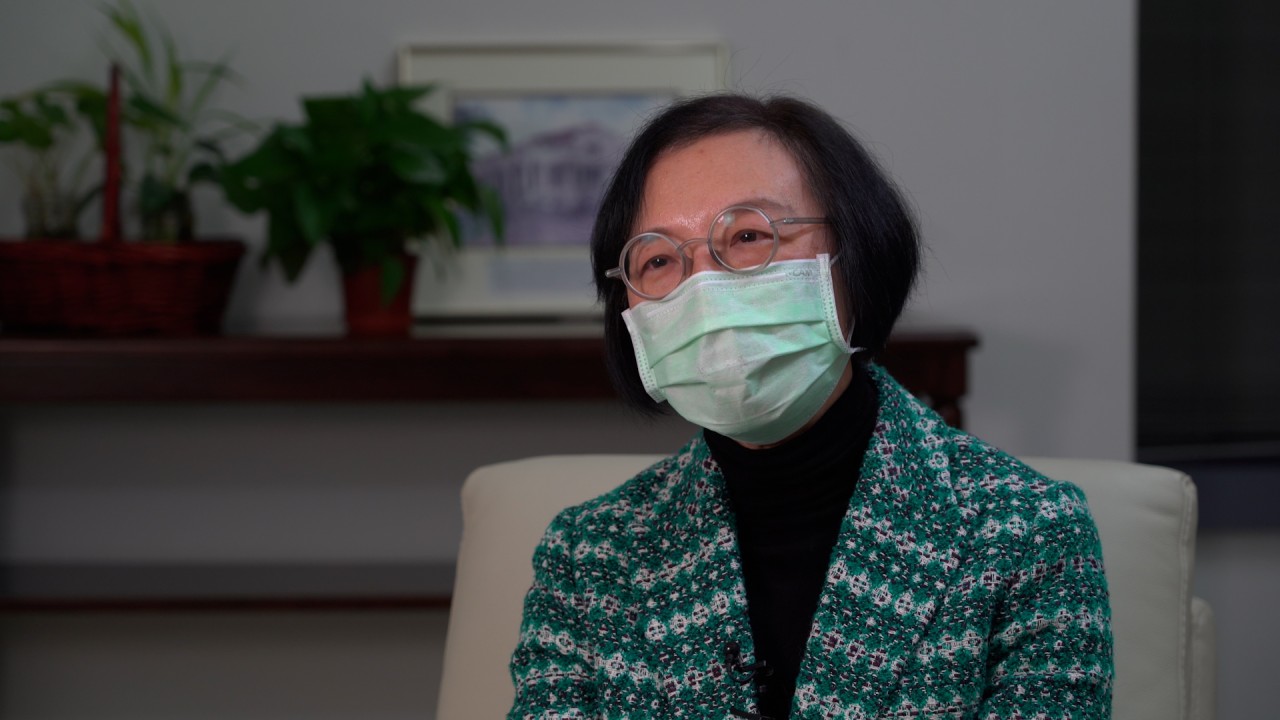
08:20
Hong Kong government ‘working very, very promptly’ to get Covid-19 vaccines, Sophia Chan says
“You led the government in firmly enforcing the law … and pushed Hong Kong back on the right track,” Xi told Lam.
“On major issues such as national security, you have taken a firm stand and assumed responsibilities, demonstrating your love of and deep sense of responsibility to the motherland and Hong Kong.”
The president also extended his sympathy to all officials sanctioned by the United States because of the security law.
Lam thanked the central government for its support of Hong Kong, adding she would work harder to lead.
“The government will also fearlessly overcome difficulties, so that Hong Kong can start again and move forward,” CCTV quoted her as saying.
Tam Yiu-chung, the city’s sole delegate to the National People’s Congress Standing Committee, the country’s top legislative body, said he believed that patriotic legislators and district councillors must become the main body governing Hong Kong and the principle could be extended to the Election Committee that selected the chief executive.
“The government already confirmed that district councillors will soon be required to pledge allegiance to the city and President Xi was just reiterating this idea, in which no one else but patriots can run the administration,” Tam said.
The president also appeared to have suggested the government bring the number of new coronavirus infections down to zero as soon as possible, Tam argued, adding: “Xi is not criticising but he has such demands.”
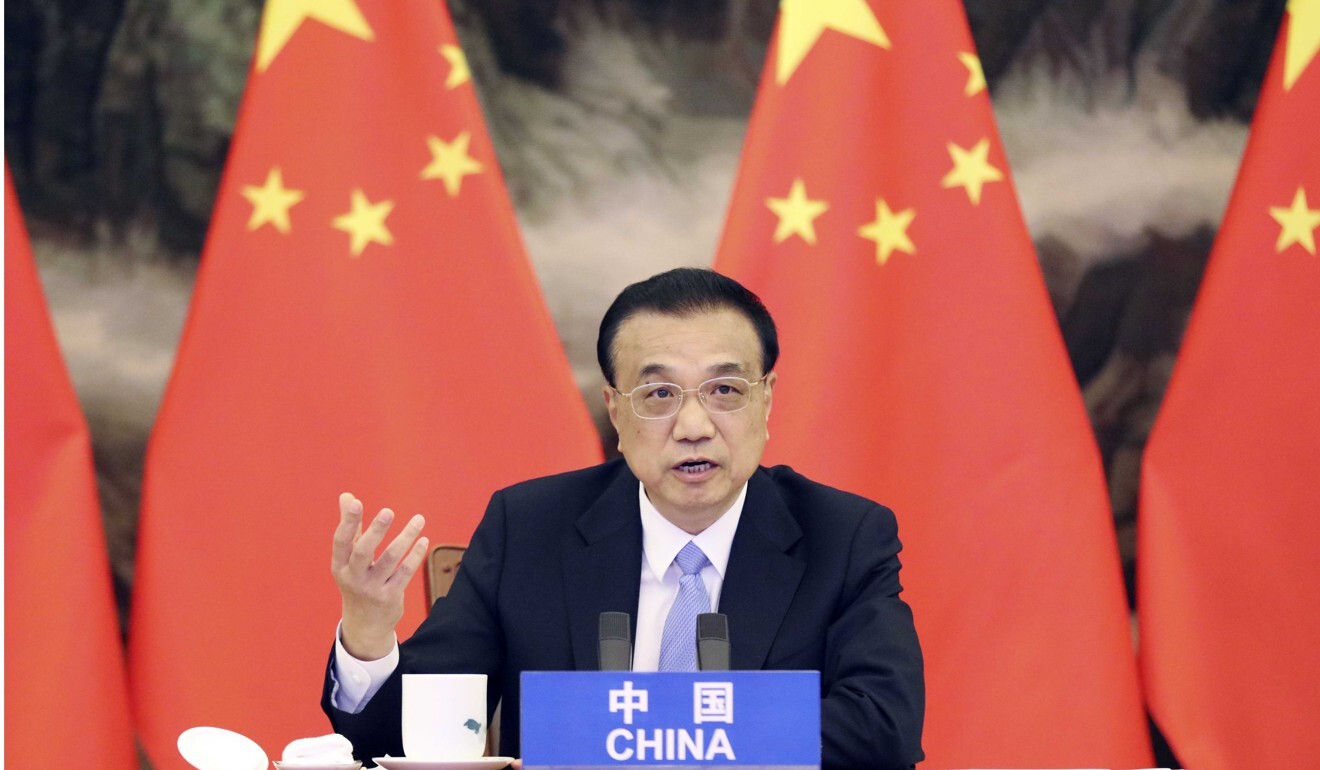
In meeting Lam, Li acknowledged 2020 was a challenging year for Hong Kong.
“We hope the city’s government can continue to do well in containing the pandemic, respond to residents’ most pressing needs … improve people’s livelihood and give full play to Hong Kong’s unique strengths,” he said.
Top Beijing officials who joined the meetings included Vice-Premier Han Zheng; Ding Xuexiang, director of the General Office of the Central Committee; and Guo Shengkun, head of the Communist Party’s Central Political and Legal Affairs Commission.
Lau Siu-kai, vice-president of the semi-official Chinese Association of Hong Kong and Macau Studies, said Xi’s remarks showed Beijing viewed Ho’s government as having done a better job than Lam’s in fighting the spread of the disease.
“He was worried because if Hong Kong cannot control the pandemic, people’s livelihoods will worsen and political instability could re-emerge,” he said. “This will affect the patriots in ruling the city.”
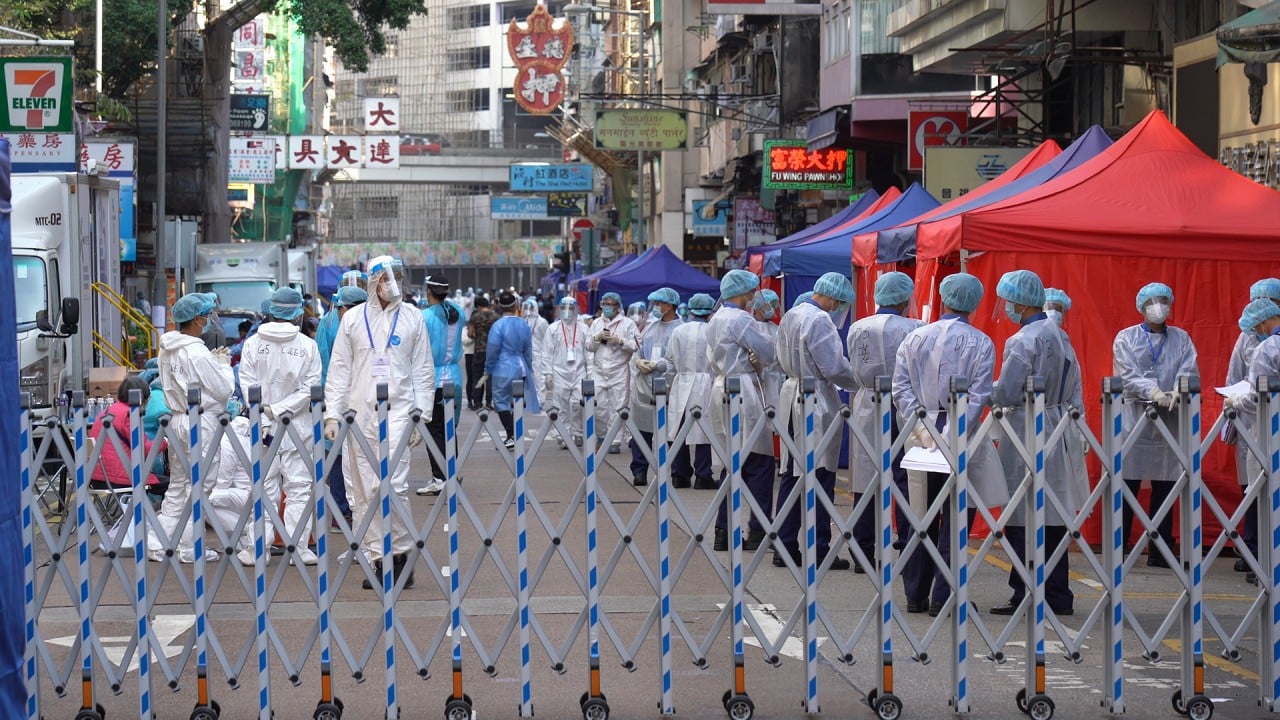
03:02
Hong Kong coronavirus lockdown: 10,000 people confined as police cordon off part of Yau Tsim Mong
Veteran China watcher Johnny Lau Yui-siu highlighted the contrast between the words Xi chose for the two leaders.
While “Beijing seldom uses words such as ‘dissatisfied’ or ‘condemned’, Xi had expressed concern over Lam’s handling of the crisis”, he said.
He also argued Xi had sent a message of reassurance to officials and pro-establishment politicians sanctioned by the US that they would have Beijing’s backing if the penalties remained.
Hong Kong recorded 60 new coronavirus infections on Wednesday, taking the total number of confirmed cases in the city to 10,282, with 174 related deaths.
Earlier in the day, Lam defended the effectiveness of an “ambush-style” lockdown that took place on Tuesday in the working-class Yau Tsim Mong district, despite the operation uncovering just one coronavirus infection and leaving some residents frustrated by the inconvenience caused.
Lam last visited Beijing in November, when she met Han, the vice-premier, and several ministers to discuss policies to revive Hong Kong’s coronavirus-hit economy.



